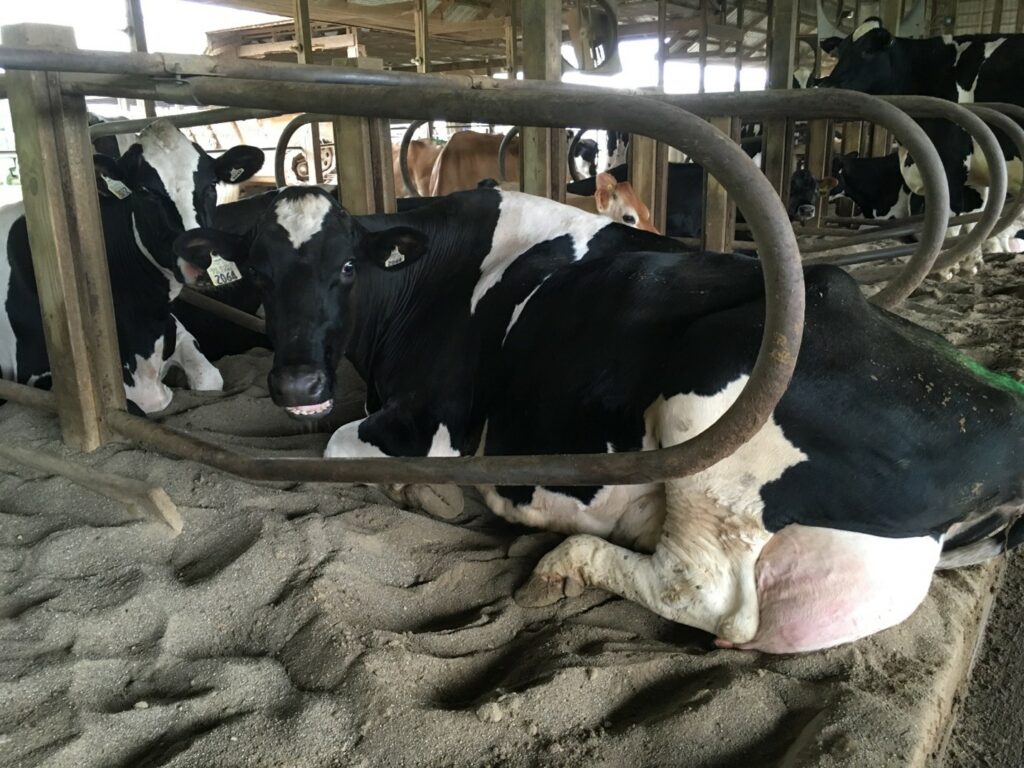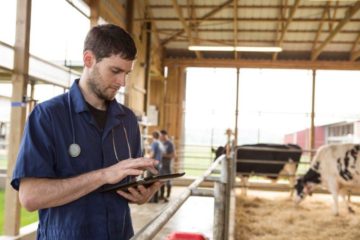Cow Comfort is Top of Mind for Dairy Farmers
Where does milk come from?
While it might seem like an elementary question, my answer might surprise you. I like to say that milk and all the scrumptious dairy foods we enjoy, like ice cream, yogurt and cheese, are the result of cows’ superpowers.
No, they don’t wear capes (they’d eat them or their herd mates would) and can’t leap tall buildings in a single bound (although I have seen them jump over fences I never thought they could clear).
But what they can do is take things we humans can’t eat, like corn silage, hay or grass and turn it into something delicious that we can eat.
In order for them to do this important work, they must be as healthy as they can be. That’s the role of the farmer, who makes animal health and care a top priority.
How do farmers care for dairy cows?
To maintain health and minimize stress, keeping cows comfortable is one of the key activities on a dairy farmer’s chore list. As a veterinarian, I’ve been on many dairy farms, and the measures taken are impressive, including providing clean, soft bedding in stalls that are appropriate sizes for cows so they can stand or lie down easily, and installing special flooring to ensure cows have good footing to prevent them from slipping.
In addition, cows need access to appropriate nutrition for their stage of milk production, as well as easy access to plenty of water, so they’re provided carefully formulated feed and continuous access to water. A cow drinks 30 to 50 gallons of water a day!
Good ventilation is important to keep cows cool not only when it’s hot, but all year around. This can be achieved through natural ventilation and/or by mechanical means, like fresh air inlets and fans. Some farms use water misters to keep their cows cool in warmer weather. Proper ventilation also helps decrease the spread of disease.
Part of keeping a cow comfortable is making sure she stays healthy, which has a positive effect on animal welfare and contributes to producing nutritious food that we feed our families. Proper nutrition, ventilation, sanitation, biosecurity, vaccination and antibiotics are all tools that can be used to maintain health.
Members of the animal health community – farmers, veterinarians, nutritionists and others involved with animal care – believe we have an ethical obligation to provide the best care for our livestock that we possibly can, which means using a variety of tools to keep cows healthy and comfortable.
Originally posted on June 17, 2016.




